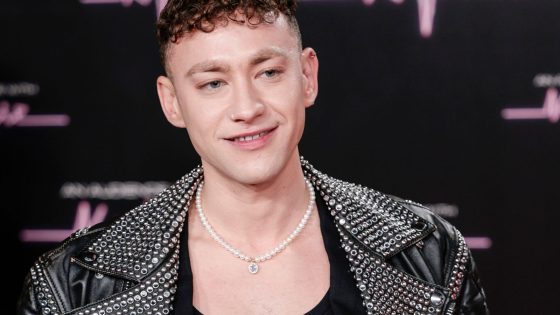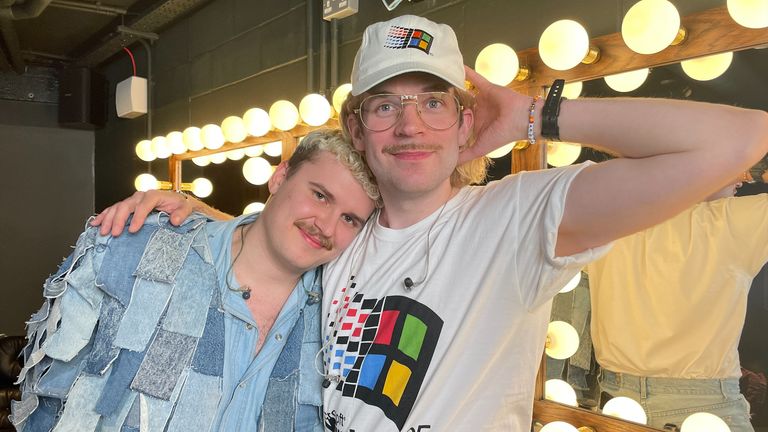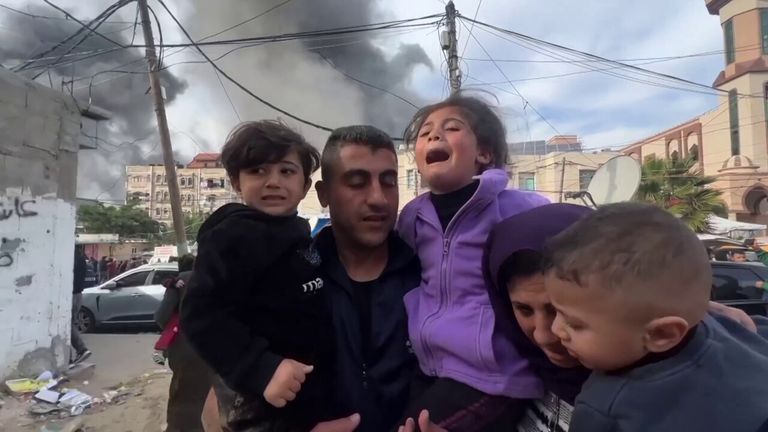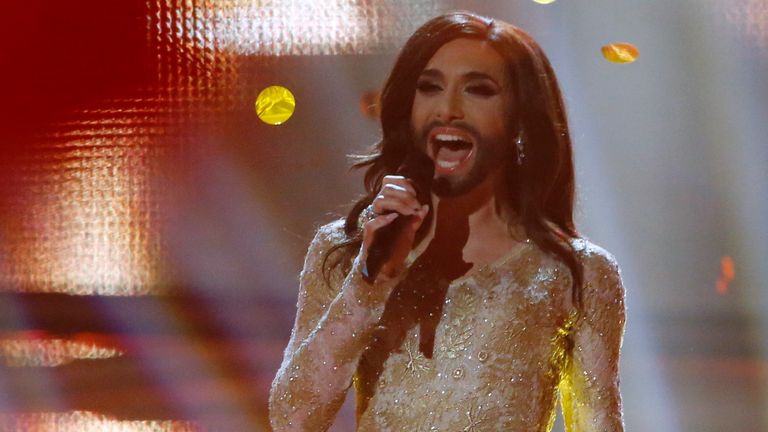It is a strange year for Europop connoisseurs, conflicted over whether they should even be watching this year’s Eurovision.
On social media, Israel‘s inclusion has fuelled talk of boycotts from those who oppose the country’s actions in Gaza.
The diplomacy of it all is a tricky one for UK entrant Olly Alexander who, while performing his song Dizzy where he can, has been limiting his press interviews.
The singer is one of the star attractions at LEP24, the London Eurovision Party – an annual chance for acts to showcase their songs in a special warm-up gig and woo any potential voters.
While Alexander swerved even being photographed by the press at the event, some of his rivals were a little more forthcoming on the situation they find themselves in.
Gothic “rebel” Bambie Thug, who’s representing Ireland, admitted it’s been challenging attempting to steer clear of politics – a prerequisite of the competition’s organisers.
Speaking about the situation in Gaza, they said: “All I want is for it to stop.
“It’s ridiculous we are so removed from our consciousness and our humanity out there.”
Bambie Thug, Alexander and several other acts have signed a statement calling for an “immediate and lasting ceasefire” in Gaza.
Finland‘s Windows95man has also put his name to it.
An alter ego of Finnish DJ Teemu Keisteri, Windows95man has had to field uncomfortable questions on the matter, saying: “Politics are everywhere… but we want to focus our show… I want to focus that joy and happiness.”
For some fans and venues, ignoring the wider politics of the situation is problematic.
The Rio Cinema in Dalston, east London, has said it won’t hold its annual screening event this year.
In a statement on X, it said it “collectively decided not to screen the grand final of the Eurovision Song Contest this year while Israel remains in the competition”.
Of course, there are ways to make statements without breaking the rules.
Conchita Wurst, who won in 2014 with her bearded drag act, was a win for LGBT rights in itself.
“Art is always a reflection of the current state of world so you can’t separate it and it’s always a comment on the artist and how people feel,” they said.
On paper, this year Eurovision should be brilliant.
Hosted in Sweden, the birthplace of ABBA, and marking 50 years since the band won with Waterloo.
But for organisers, this year’s politics is something Eurovision couldn’t escape if they wanted to.
The Eurovision Song Contest final takes play on 11 May.
Source Agencies






